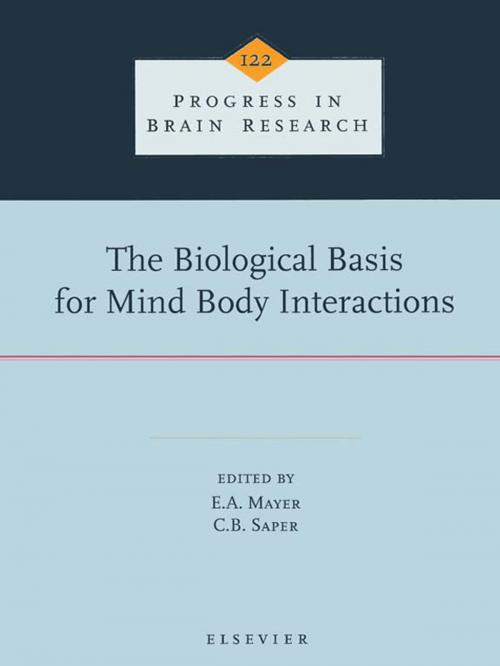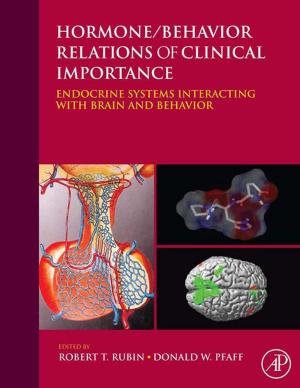The Biological Basis for Mind Body Interactions
Nonfiction, Health & Well Being, Medical, Specialties, Internal Medicine, Neuroscience, Science & Nature, Science, Biological Sciences| Author: | ISBN: | 9780080862477 | |
| Publisher: | Elsevier Science | Publication: | February 3, 2000 |
| Imprint: | Elsevier Science | Language: | English |
| Author: | |
| ISBN: | 9780080862477 |
| Publisher: | Elsevier Science |
| Publication: | February 3, 2000 |
| Imprint: | Elsevier Science |
| Language: | English |
The volume on Biological Basis for Mind Body Interactions is organized into 6 major sections, each dealing with a unique aspect of the general topic: After establishing the relationship between mind, brain and emotions, the first section deals with general neurobiological aspects mediating the effect of stress on various organ systems, including the immune and cardiovascular system. The second section covers the topic of how early life stressor can permanently alter responsiveness of the nervous system in animals and in man. The third section deals with influences of the internal environment, mediated by neuroendocrine and visceral afferent pathways on the CNS. The fourth section which deals with influences of body on the brain, focuses on mechanisms involved in perception and modulation of pain. The fifth section deals with influences of the mind/brain on the body, with an emphasis on central and peripheral mechanisms of autonomic control of body functions. The last section deals with a series of practical issues of mind body treatments, including acupuncture, breathing, body work and meditation. In addition, issues such as cost effectiveness and research aspects are discussed. Authors in this last section frequently refer to topics and mechanisms addressed in the early sections, making it a truly integrated volume.
The unique aspect of the volume is the integration of state of the art research information on biological and practical aspects of mind/brain/body interactions. It is based on the beliefs of the editors and participants that the traditional separation of mind and body in research and in treatment of human disease is obsolete and needs to be replaced with a new unifying paradigm. Ironically, this evolving paradigm shares many similarities with ancient pre-Cartesian paradigms of health and disease.
The volume on Biological Basis for Mind Body Interactions is organized into 6 major sections, each dealing with a unique aspect of the general topic: After establishing the relationship between mind, brain and emotions, the first section deals with general neurobiological aspects mediating the effect of stress on various organ systems, including the immune and cardiovascular system. The second section covers the topic of how early life stressor can permanently alter responsiveness of the nervous system in animals and in man. The third section deals with influences of the internal environment, mediated by neuroendocrine and visceral afferent pathways on the CNS. The fourth section which deals with influences of body on the brain, focuses on mechanisms involved in perception and modulation of pain. The fifth section deals with influences of the mind/brain on the body, with an emphasis on central and peripheral mechanisms of autonomic control of body functions. The last section deals with a series of practical issues of mind body treatments, including acupuncture, breathing, body work and meditation. In addition, issues such as cost effectiveness and research aspects are discussed. Authors in this last section frequently refer to topics and mechanisms addressed in the early sections, making it a truly integrated volume.
The unique aspect of the volume is the integration of state of the art research information on biological and practical aspects of mind/brain/body interactions. It is based on the beliefs of the editors and participants that the traditional separation of mind and body in research and in treatment of human disease is obsolete and needs to be replaced with a new unifying paradigm. Ironically, this evolving paradigm shares many similarities with ancient pre-Cartesian paradigms of health and disease.















